The MiG-25, also known by its NATO reporting name "Foxbat," is a Soviet-era supersonic interceptor and reconnaissance aircraft, designed by Mikoyan-Gurevich in the 1960s. It was one of the fastest military aircraft ever produced and was primarily built to counter high-speed threats such as the U.S. SR-71 Blackbird and long-range bombers. Here’s an overview:
Key Features and Specifications:
- Speed: The MiG-25 was capable of reaching speeds of Mach 2.83 (around 3,000 km/h or 1,864 mph), with a maximum recorded speed of Mach 3.2 under certain conditions, though sustained Mach 3 speeds risked engine damage.
- Altitude: The aircraft could fly at altitudes up to 25,000 meters (82,000 feet), making it highly effective for intercepting high-altitude targets and conducting reconnaissance missions.
- Engines: It is powered by two Tumansky R-15B-300 turbojet engines, which were designed to maximize high-speed performance at high altitudes.
- Armament: The interceptor variant (MiG-25P) was equipped with four air-to-air missiles (R-40), capable of engaging targets from long distances. The reconnaissance variant (MiG-25R) lacked significant armament but had extensive camera and electronic equipment.
- Radar and Avionics: The MiG-25P interceptor variant was fitted with the Smerch-A radar and a limited suite of avionics focused on high-speed intercept missions. Its avionics were considered basic compared to Western fighters of the time.
- Construction: Due to the extreme heat generated at high speeds, the MiG-25 was primarily constructed using stainless steel, accounting for around 80% of the aircraft. The rest was made of titanium and other materials to manage weight and temperature.
Roles and Variants:
- MiG-25P: Interceptor version designed to engage hostile aircraft at high speeds and altitudes.
- MiG-25R: Reconnaissance version equipped with sophisticated cameras and electronic sensors.
- MiG-25RB: Bomber-reconnaissance version that combined reconnaissance capability with the ability to carry bombs.
- MiG-25PD: An upgraded interceptor with improved radar, avionics, and more modern air-to-air missiles.
Operational History:
- Cold War Role: The MiG-25 was primarily deployed during the Cold War to defend Soviet airspace from intruding reconnaissance aircraft like the SR-71. It was also widely used for high-altitude reconnaissance missions.
- Service in Multiple Air Forces: In addition to Soviet service, the MiG-25 was operated by countries like India, Iraq, Syria, and Libya.
- Famous Defection: In 1976, Soviet pilot Viktor Belenko famously defected to the West with his MiG-25, landing in Japan and revealing the aircraft's design secrets to Western intelligence.
Legacy:
Although technologically advanced for its time in terms of speed and altitude, the MiG-25 had limitations in maneuverability and close combat. It was succeeded by the more advanced MiG-31 "Foxhound." Despite these drawbacks, the MiG-25 was a formidable platform for high-speed, high-altitude missions. It remained in service in various forms into the 21st century.
Specifications
General Characteristics
- Created On Android
- Wingspan 39.6ft (12.1m)
- Length 67.7ft (20.6m)
- Height 17.1ft (5.2m)
- Empty Weight 24,510lbs (11,117kg)
- Loaded Weight 55,587lbs (25,214kg)
Performance
- Power/Weight Ratio 1.617
- Wing Loading 85.9lbs/ft2 (419.4kg/m2)
- Wing Area 647.2ft2 (60.1m2)
- Drag Points 6407
Parts
- Number of Parts 93
- Control Surfaces 6
- Performance Cost 450

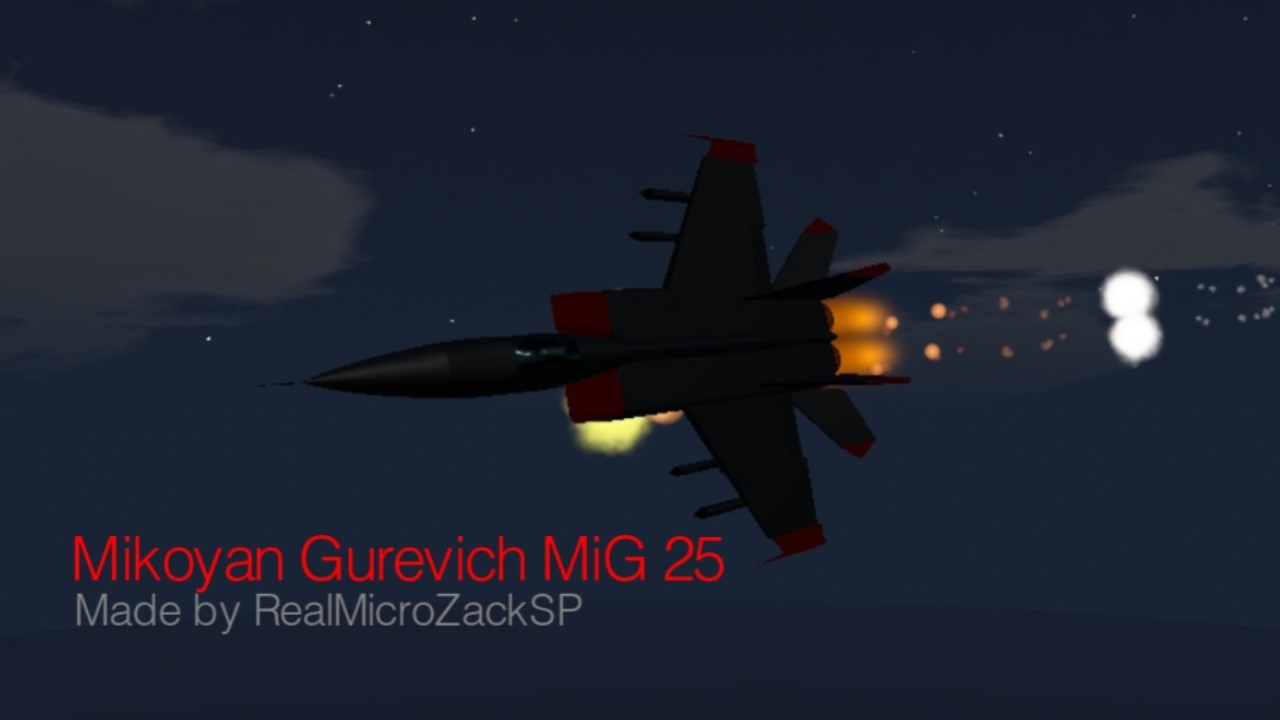
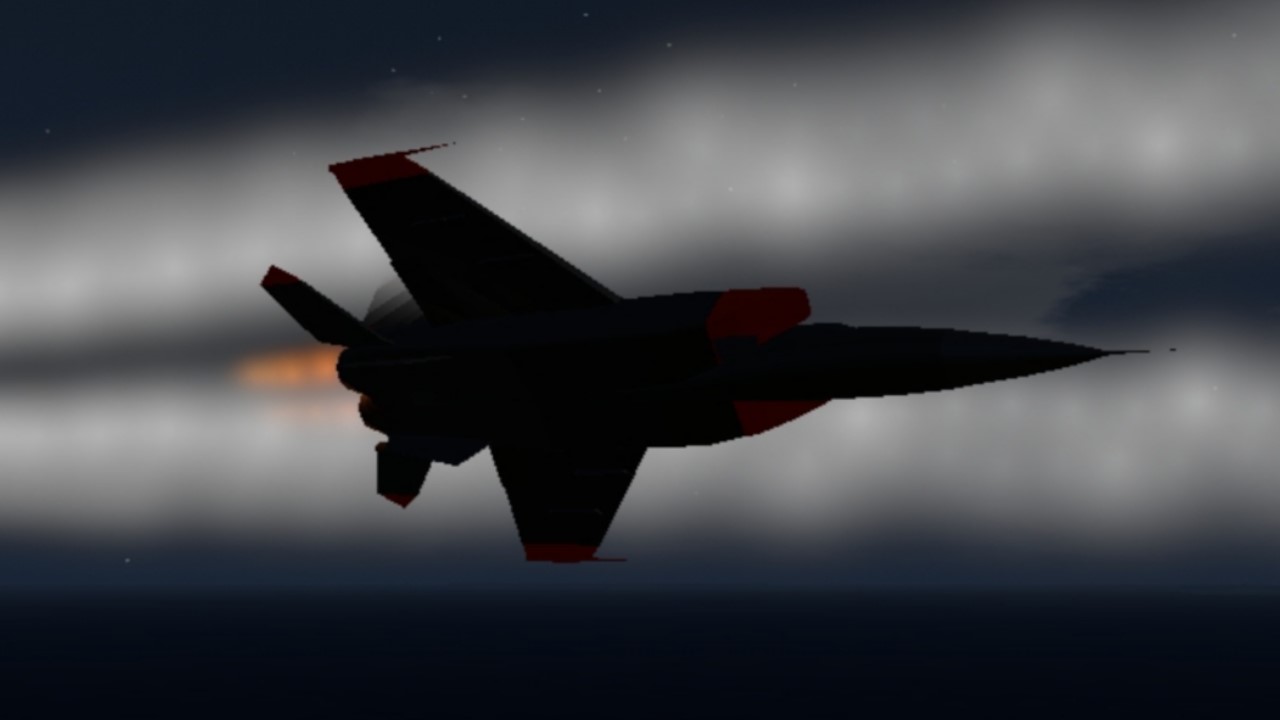
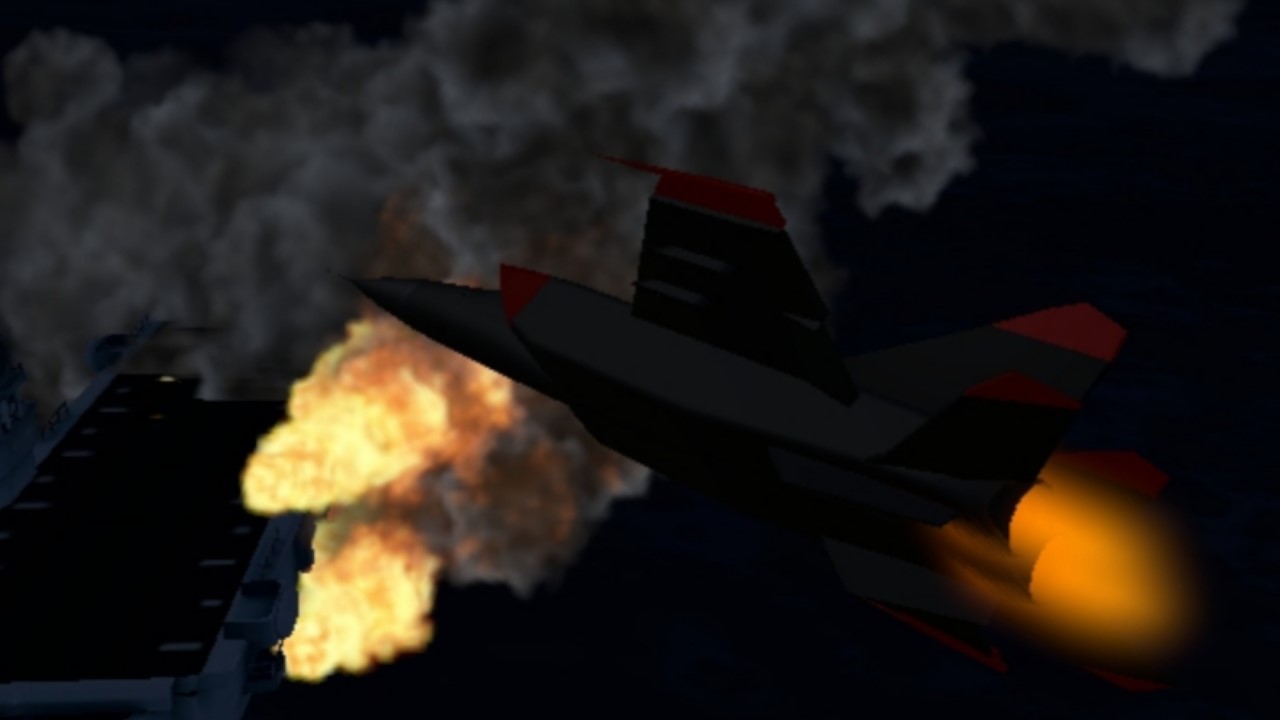

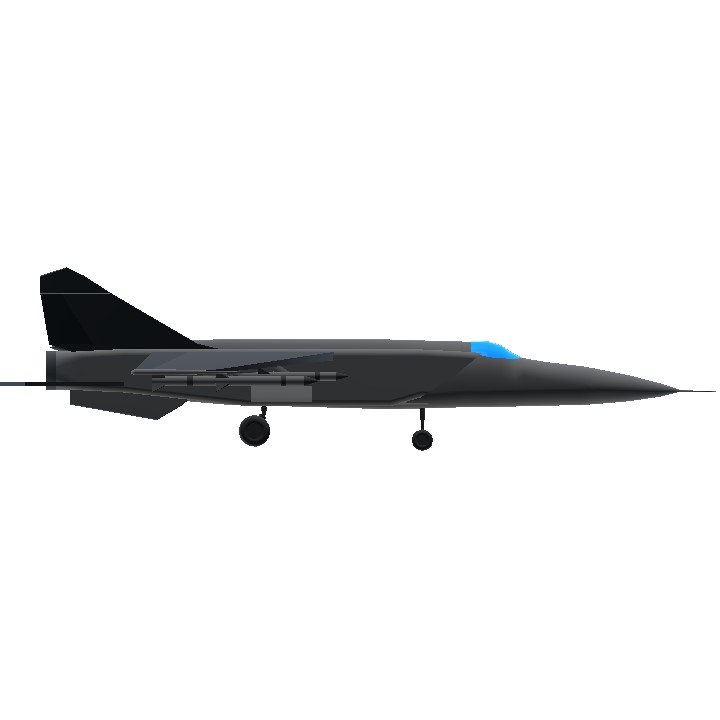
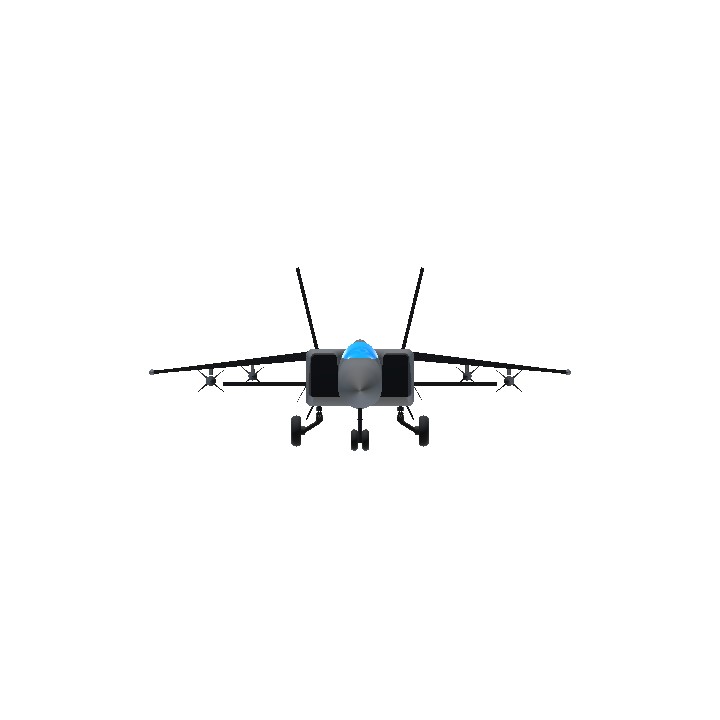
MIG
1: @SPTNR
2: @Rjenteissussy
3: @KPLBall
4: @001
5: @Zhixunlin23
6: @CrestelAeronautics
7: @Mosquitowithagun